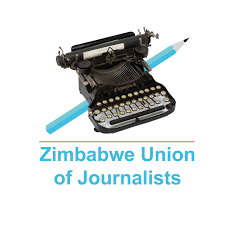The safety and security of journalists remain in peril, especially as the country heads towards this year’s elections, the Zimbabwe Union of Journalists (ZUJ) has warned.
In its World Press Freedom Day statement, ZUJ noted that despite the government’s expressed commitment to improving fundamental issues to do with freedom of expression and access to information, the situation on the ground remains shaky which is a source of serious concern.
“While government repealed the draconian Access to Information and Protection of Privacy Act (AIPPA) and replaced it with what seems to be a more media-friendly law, the Freedom of Information Act, the Union is worried that the repealed law’s residue continues to linger in both the Cyber Security and Data Protection Act and the Zimbabwe Media Commission Act amendment bill,” the union said.
“Journalists and members of the public still struggle to access information from government ministries and agencies, including parastatals although the Freedom of Information Act was enacted to curb such tendencies and enhance public accountability.”
The union also noted that the enactment of the Cyber and Data Protection Act in 2021, which criminalises the publication of falsehoods under Section 164C, and the gazetting of the Private Voluntary Organisations Bill have the potential to torpedo the public’s fundamental rights relating to freedom of expression, association and privacy.
With elections due in a few months, the union raised concerns about the safety of journalists.
“At least five journalists/media practitioners have either been assaulted or ill-treated at rallies held by Zimbabwe’s main political parties in the recent past. Three other journalists have been charged with publishing of falsehoods, under Section 31 of the Criminal law (Codification and Reform Act).
And only last month, journalists from one media house were threatened (by a supposed government official on his Twitter handle) with imprisonment for “repeating falsehoods” after the airing of the Gold Mafia documentary on Zimbabwe by a Qatari-based news outlet, Aljazeera.”
ZUJ and other media organisations have been engaging the Zimbabwe Republic Police (ZRP) to ensure safety and security of journalists, especially in this electoral season.
“When Journalism is compromised, human rights cannot be protected. A free media reporting on issues that interest the public and shape their lives is a key building block of any rights respecting society.
In line with this year’s theme, “Shaping a future of rights: Freedom of Expression as a driver for all other human rights”, ZUJ, therefore, recognizes this nexus between the media and the citizenry and that an informed and knowledgeable society is central to its development, governance and democratic consolidation.”
ZUJ also urged media organisations to improve the welfare of journalists as “media practitioners across the board still earn peanuts which is a threat to the industry itself and its ability to play its role as the fourth estate of the realm.”

